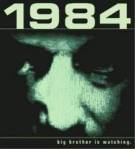Here I’m going to share some information on e-contract and its principles with you.
With the coming of the Internet and the introduction of e-commerce to business the demand for online contracts has risen tremendously. However, setting contracts has been traditionally on paper and to show agreement, parties place their signatures on the doted line. These agreements are legally binding between both parties and enforceable in a court of law.
But what about when it comes to an online contract?
The UNCITRAL (United Nations Commission on International Trade Law) has adopted the E-commerce Model law on 12 Jun 1996. The aim was to provide adequate legal protection for those who wish to engage in e-commerce by ensuring that e-contracts are legally recognized by law and courts. Moreover, it established trust among parties in e-commerce and removed any obstacles in its way.
In 2006, Malaysian parliament passed the Electronic Commerce Act (ECA) 2006 that provided for legal recognition of electronic messages in commercial transactions and for the use of e-messages to fulfill legal requirements. It also enabled and facilitated commercial transactions through the use of electronic means. They adopted the following model law of e-commerce drafted by UNCITRAL.
This Model Law operates on principles: Equivalence, Autonomy of Contracts, Voluntary Use, Primacy of other Requirements, Substantive Elements of Contracts still Applies and Primacy of Consumer Protection Laws.
What’s your take on it?










